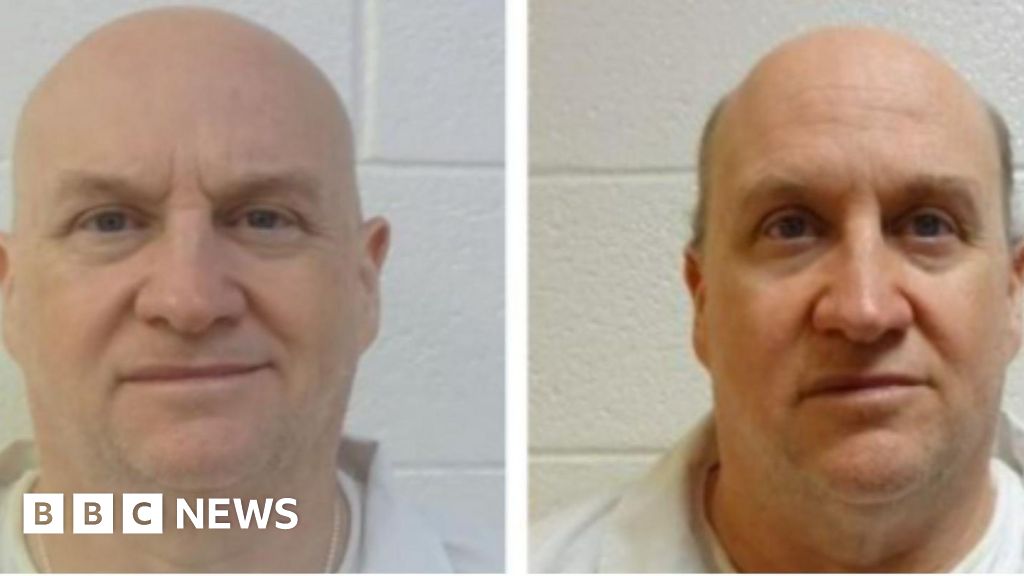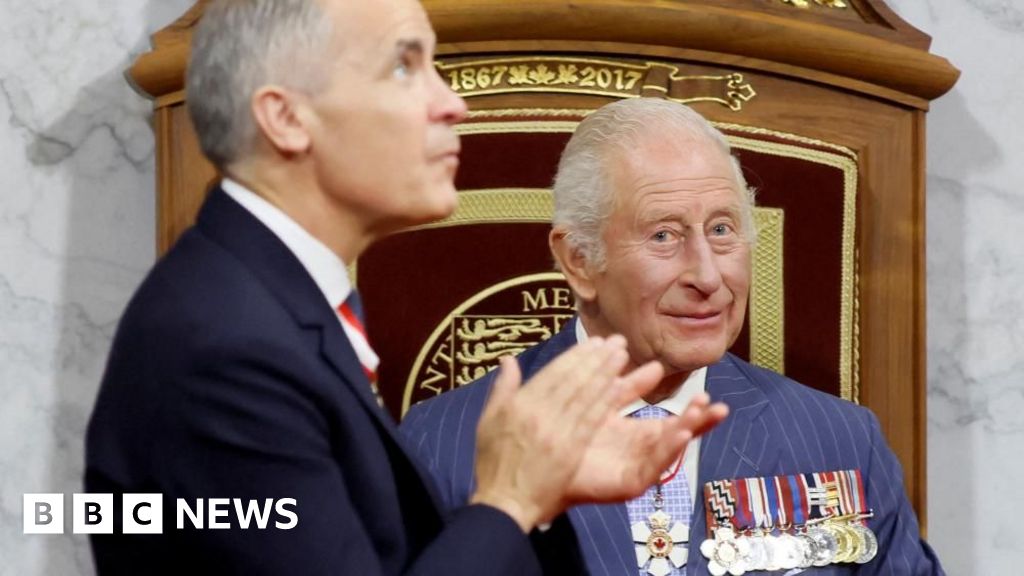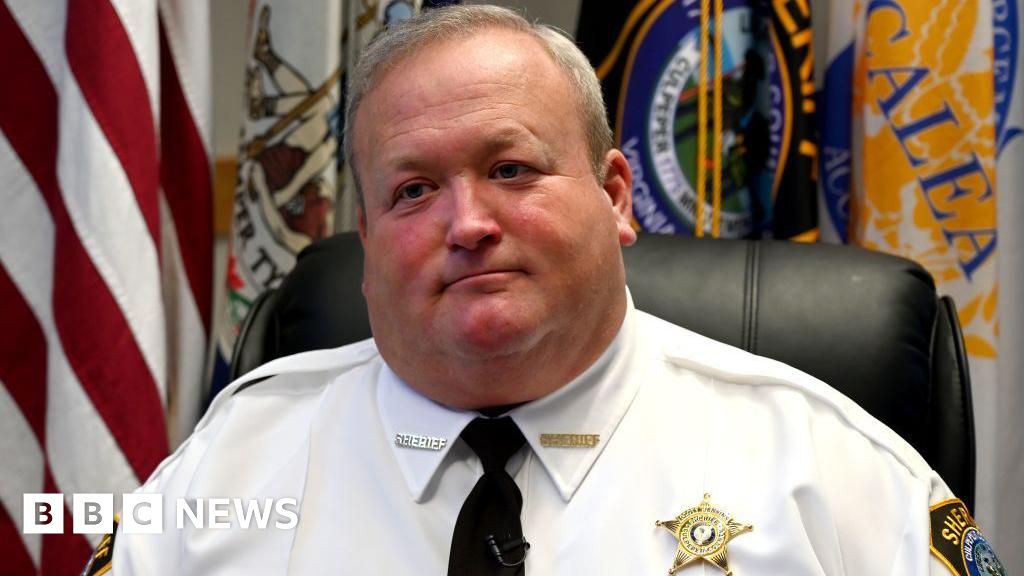ARTICLE AD BOX
Watch: Drone footage shows the aftermath of Israeli airstrikes on Gaza
By Brandon Drenon
BBC News, Washington
Dorgham Abusalim has not heard from his parents in Gaza for days. The wait is "absolutely horrifying", he says.
Since he last spoke to them on Tuesday, Dorgham has been glued to the television, watching the Israeli bombing of Gaza, and watching the death toll climb.
On Whatsapp, he learned of one family in Deir al-Balah that lost 20 relatives in a single night. "That's my family's neighbourhood," he tells the BBC from his home in Washington DC.
He is one of many Palestinian-Americans whose days are now marked by sporadic, anxious messages and calls with family and friends thousands of miles away.
More than 1,500 Palestinians have been killed in the Gaza Strip since the strikes began, in retaliation for the killing of 1,300 people and kidnapping of about 150 people in Israel by Hamas militants.
About 2.2 million people live in the territory, which is controlled by Hamas. On Thursday night, Israel told everyone in the north - about 1.1 million people - to relocate to the south within 24 hours.
"Any place from which Hamas operates will turn into rubble," Israeli Prime Minister Benjamin Netanyahu has said.
Image source, Dorgham Abusalim
Image caption,Dorgham Abusalim, when he was a child, in Gaza with his father
For Dorgham, 34, witnessing the war unfold from afar is terrifying and paralysing. He says he is keenly aware that any goodbye may well be the last.
"I can't go to bed without wanting to hear their voice," Dorgham says of his parents. "I'm going to continue calling and calling until I get through."
Israel turned off the water, energy and gas to Gaza on Saturday, and the United Nations has warned of a humanitarian disaster as hospitals run short on fuel and people struggle to store food.
As the electricity supplies dwindle, so do Dorgham's chances of hearing his mother's voice.
"Their electricity has gone down from four hours to two hours to one hour a day," Dorgham says, adding that his family are scrambling every day to find fuel.
"Some of my family are fleeing south," he says, "but many are staying for fear they will never be able to return to their homes."
Tariq Luthun, a 32-year-old Palestinian-American living in Detroit, Michigan, says his extended family in Gaza has batteries for power, but is trying to use them sparingly.
"They are safe as of this interview, or as of this moment," Tariq tells the BBC, but he says he worries about them constantly.
Image source, Tariq Luthun
Image caption,Tariq Luthun worries that loved ones still in Gaza could be killed by air strikes
"Every day I wake up, I check to see if family members are alive," he says. "Then I go to work. After I log off work, I check again to see if my family members are still alive."
The stress of this routine is taking an emotional toll. "I'm really devastated. It weighs on me."
Palestinian-Americans who spoke to the BBC say they feel the plight of civilians in Gaza is being forgotten as the majority of US politicians declare their support for Israel.
In a speech on Tuesday, President Joe Biden said Israel had a right and duty to respond to the attacks.
He was careful to say that Hamas "does not stand for the Palestinian people's right to dignity and self-determination", but his speech was seen by many analysts as giving a green light to Israel to proceed with a full-scale ground operation, which would likely result in more civilian deaths.
"In the past you'd see the both-sides-ism," Tariq says. "You don't see that here."
More on Israel Gaza war
Dorgham says harsh rhetoric from politicians in Israel and the US - like Republican Senator Lindsey Graham suggesting that Israel "level the place" - makes him feel hopeless.
"It feels to me that we live in a world that categorically hates us. Why?"
Iman Kishawi, who was born in Gaza in 1958 but fled because of war when she was seven years old, says she worries constantly about her aunts and cousins who are still there.
"I don't know what to do," she says from her home in Los Angeles, describing how she paces back and forth around the house. "They don't have phones. They don't have electricity. They are under constant bombardment."
Image source, Iman Kishawi
Image caption,Iman Kishawi said she has felt "paralysed" since the war began on Saturday
She relies on updates from other relatives in the US who have been able to get in touch with her cousins.
Speaking to them brings back memories of her childhood in Gaza, she says, including trips to the beach, where dozens of relatives would gather for family picnics. "The sea was beautiful. Really, really beautiful," she says.
Such moments of nostalgia offer only a brief respite from the daily worry about her cousins could be victims of the next bomb strike.
She's been told they are OK, for now.
"When my cousin says OK, it means this second we're OK," she explains. "They don't know what's going to happen next."
Image source, Iman Kishawi
Image caption,Iman Kishawi sits on a swing in Gaza in 1959 between her mother and her grandmother

 1 year ago
35
1 year ago
35








 English (US) ·
English (US) ·